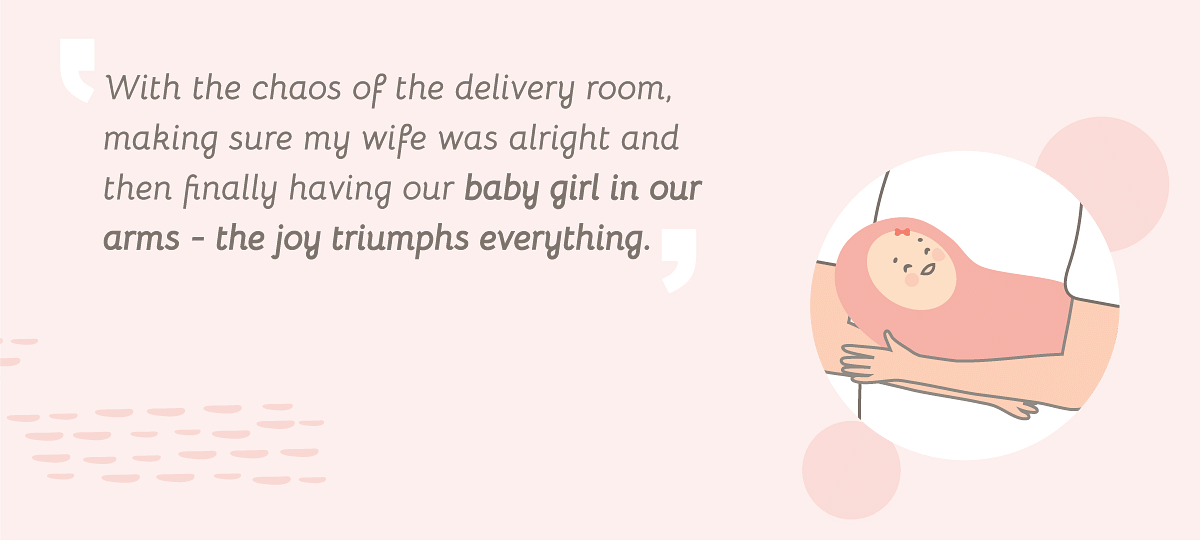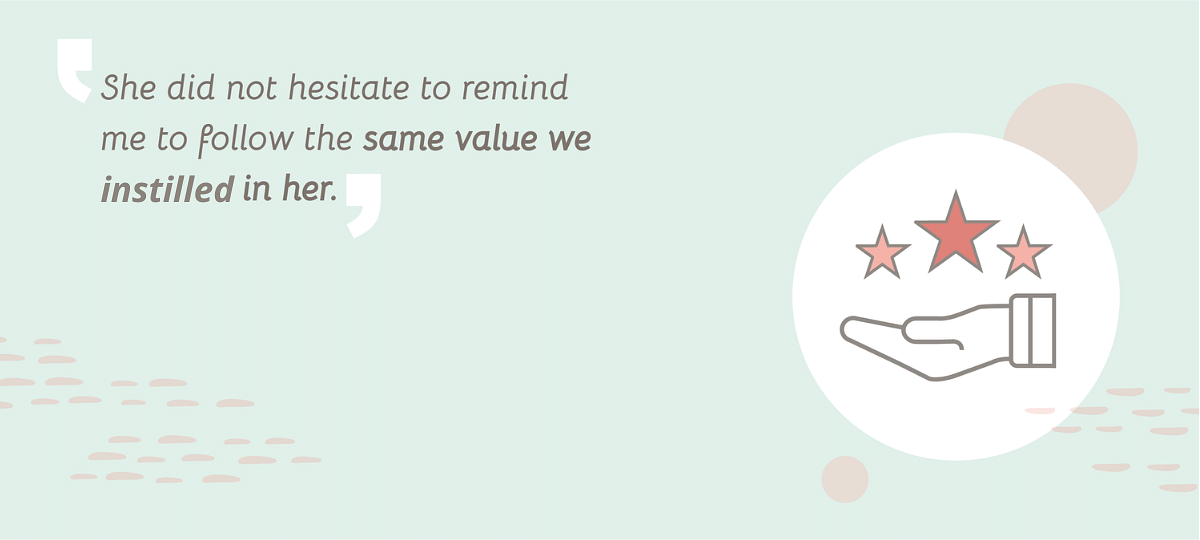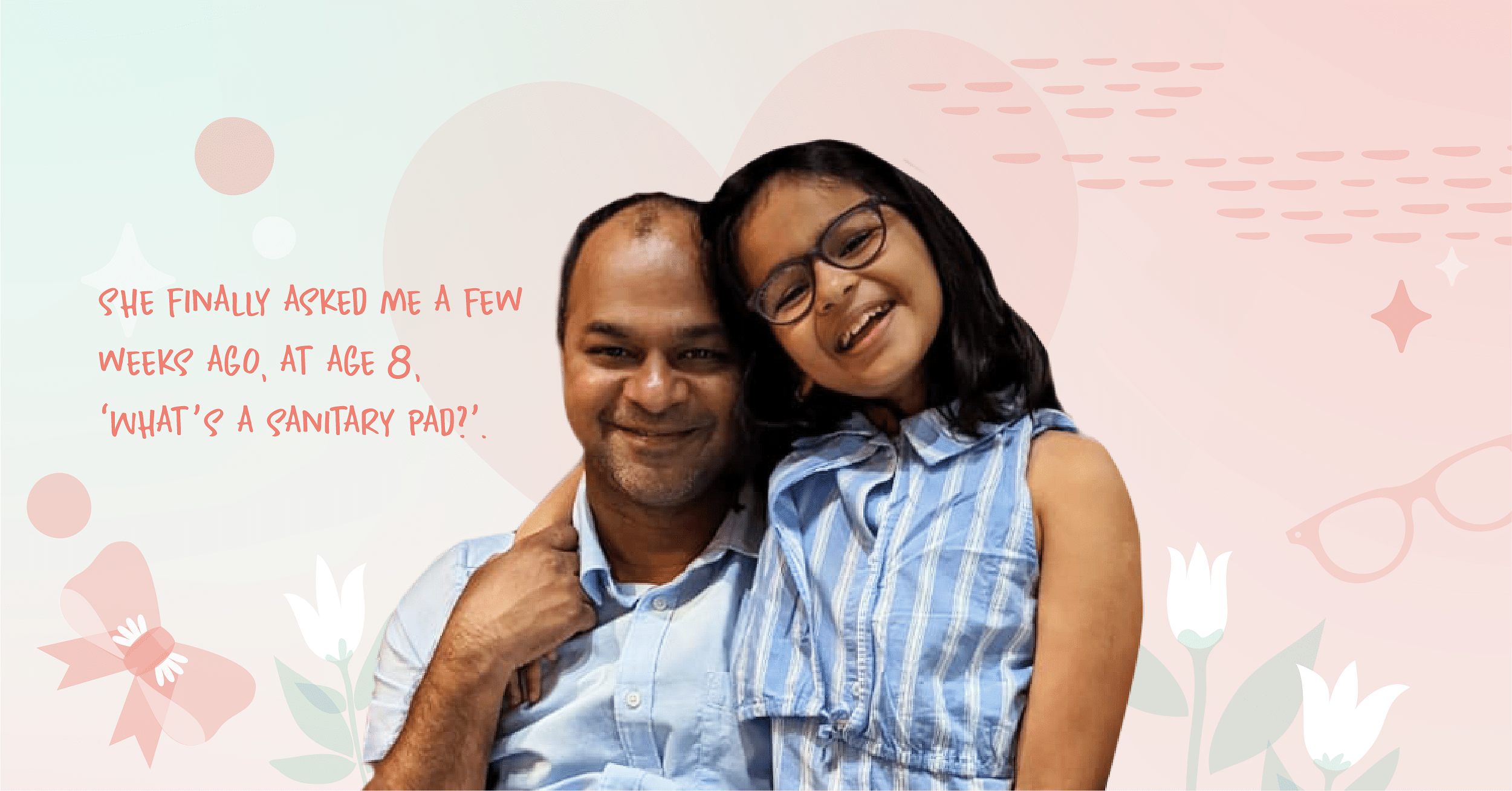Finding out you’re going to be a father for the first time can be an incredibly happy and exciting time, but nothing can truly prepare you for it.
A few years ago, my wife Anjana and I were both working professionals, building our careers and doing the hard work any person is expected to do. One day, she told me she suspected she was pregnant but couldn’t be sure. A few days later we realised it was a false alarm, but a few months after a long and tough day at the office, I reached home and she told me she was pregnant. This came as a surprise because we weren’t trying to conceive but once the finality of it set in, one thing I knew is that we wanted a girl.
As possible parents, anyone would hope to have a healthy baby in their arms regardless of the gender, but almost every person in our lives – friends, family and even a few strangers – was convinced it would be a boy. From analysing the shape of the stomach to a few more detective-style activities, everyone around us was convinced so we had names ready for both a girl and a boy.
It wasn’t until we were in the delivery room and once the baby had safely entered the world, that everyone held their breath at the announcement, “It’s a girl!”
While we were prepared to have our baby, once she was here we didn’t know what to do. The main thought that runs through your head until the baby arrives is figuring out how to help your spouse have a healthy pregnancy. Unlike in the movies, the overwhelming feeling does not set in once the baby is in your arms.

Growing up, my wife and I came from families where everyone contributed to household chores. We decided to take the same approach with our daughter; imbibing the same values our parents instilled in us. Naturally, neither of us ever had the experience of what it meant to raise a child, but along the way we learned how to manage between the two – and three – of us. Everyone gives you advice, but we made sure we were there for each other and once we set a routine between us, we were able to divide, conquer and grow with our child.
As kids grow older, they develop a strong point of view and opinion. They are often based on what they hear in school, watch on TV, and what they read. In our home, we were mindful of using the right language. To this day, we refrain from using words like ‘stupid’ and ‘idiot’ since in the larger scale of things, they aren’t great words to include in your vocabulary. On one particular day, I muttered the word under my breath while watching something on the TV. My daughter, however, heard me and sat me down and said, “How could you say this word? You know that it cannot be used.”

Similarly, curiosity about other things grows, especially if heard often. With words such as sanitary pads being a part of my daily vocabulary, she finally asked me a few weeks ago, at age 8, ‘What’s a sanitary pad?’.
I knew at that moment that this would be an important conversation, so I spoke to her as honestly and clearly as I could. We calmly sat together and had a conversation about the basics – what periods are, what a sanitary pad is and how it helps.
With Nua also being a huge part of my daily life, it has made it much easier to open up to her and other women about women’s wellness. When we say we take women’s wellness seriously and want to help make women’s lives better, we mean it. I get the opportunity to work with young women leaders in a space that is trying to understand women better, especially the wellness aspects.
Nothing stops children, especially girls. They’re going to enter a world where we still have stereotypes of what men and women should be like and it can be deflating. For any father, it’s important to understand the paths that a girl and woman go through will be different from what you as a man have gone through.

As men, we tend to overlook the fact that women inevitably have different experiences in life compared to us. I know that now after building Nua. There are so many dimensions to womanhood than just the need for a sanitary pad. Make sure that your daughter knows it’s normal and build her confidence.
No one teaches you anything there is to fatherhood more than your child. She can teach you more than you could ever imagine. And just like you learned from her, ensure she learns that anything is possible for her to achieve. She should feel empowered, with a strength in knowing who she is and that she can do anything she wishes to.



